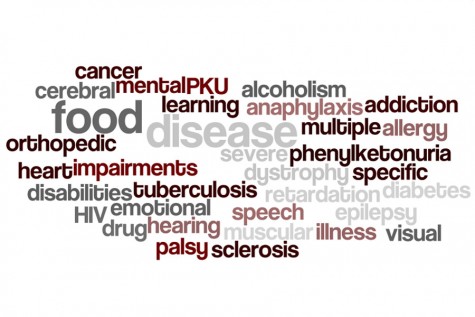The need for a change in food regulations
As the world evolves, definitions change. Look at the laws of America. Things are constantly being added to and constantly being updated. As the world changes, so do the people. As those changes occur, the government that rules over the changing people also need to adapt and evolve, as the American government has through the Revolutionary War, the Civil War and the Women’s rights movement.
In America, there are certain groups of people provided for by federal law, due to special circumstances in those people’s lives or health. In food terms, people with a federally defined “disabilities” are covered. People included would be those who suffer from any of the following ailments: orthopedic, visual, speech and hearing impairments, cerebral palsy, epilepsy, muscular dystrophy, multiple sclerosis, cancer, heart disease, metabolic diseases, such as diabetes or phenylketonuria (PKU), food anaphylaxis (severe food allergy), mental retardation, emotional illness (specifically anxiety and depression), drug addiction and alcoholism, specific learning disabilities, HIV disease, and tuberculosis. Food intolerances, however, are not covered by federal law.
Students who suffer from an intolerance, such as fructose, gluten or lactose, are considered to have a “non-disability” by federal law and are not provided for. Yet, for those students with intolerances, eating foods they are not supposed to causes excruciating pain. It is more than just “basic” pain. When in fetal position, crying on the floor, you are not able to learn. That IS a disability.
It is time for definitions to change. It is time for students with special dietary needs in the form of an intolerance to be provided for and treated equally. It is important to eat healthy. Americans should be eating more fruits and vegetables and less carbs and getting more physical activity. And Americans can always to a better job of that. Yet, how can the people do better if the food they eat is truly not healthy?
It is also time for the definition of food standards and food safety to change. In the last twenty years, the food and farming industry has been producing foods classified as GMOs, or genetically modified organisms. Genetic engineers modify the plants to grow a certain way- faster, taller, bigger kernels or anything else. Wheat is one of the most genetically modified foods in America. The Oxford Journal states that when a certain gene in wheat is expressed twice, it “leads to increased dough strength.” This gives the wheat dough more uses, and it can be made into more things. The Oxford Journal continues by saying, “the effect depends on its expression level, which can result in an over- strong gluten presence.” And a too strong gluten present can have adverse effects on the person’s body. It is this change that has allegedly caused these numerous and serious diet concerns.
It is time for change. Definitions need to change to provide for a growing population of students with food intolerance and food sensitive students. And these changes begin at the federal level. People need to be provided for- people that are currently being left to fend for their own.
Food- healthy and natural food- is an important aspect of life. And as more and more people develop allergies, intolerances, sensitivities and diseases, the need for a definition change is becoming increasingly apparent.

We are an eclectic group of:
Photographers, Critical Thinkers, Writers, Graphic Designers, Dreamers, Sometimes Snarky, Netflix Binge-ers, Coffee Addicts,...






